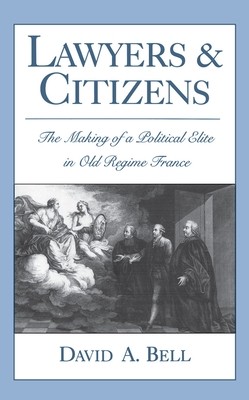
- We will send in 10–14 business days.
- Author: David A Bell
- Publisher: Oxford University Press, USA
- ISBN-10: 0197507727
- ISBN-13: 9780197507728
- Format: 15.5 x 23.9 x 2 cm, minkšti viršeliai
- Language: English
- SAVE -10% with code: EXTRA
Reviews
Description
David Bell's book traces the development of the French legal profession between the reign of Louis XIV and the French Revolution, showing how lawyers influenced, and were influenced by, the period's passionate political and religious conflicts. Bell analyzes how these key "middling" figures in French society were transformed from the institutional technicians of absolute monarchy into the self-appointed "voices of public opinion," and leaders of opposition political journalism. He describes the birth of an independent legal profession in the late seventeenth century, its alienation from the monarchy under the pressure of religious disputes in the early eighteenth century, and its transformation into a standard-bearer of "enlightened" opinion in the decades before the Revolution. His work illuminates the workings of politics under a theoretically absolute monarchy, and the importance of long-standing constitutional debates for the ideological origins of the Revolution. It also
sheds new light on the development of the modern professions, and of the middle classes in France.
EXTRA 10 % discount with code: EXTRA
The promotion ends in 22d.11:25:46
The discount code is valid when purchasing from 10 €. Discounts do not stack.
- Author: David A Bell
- Publisher: Oxford University Press, USA
- ISBN-10: 0197507727
- ISBN-13: 9780197507728
- Format: 15.5 x 23.9 x 2 cm, minkšti viršeliai
- Language: English English
David Bell's book traces the development of the French legal profession between the reign of Louis XIV and the French Revolution, showing how lawyers influenced, and were influenced by, the period's passionate political and religious conflicts. Bell analyzes how these key "middling" figures in French society were transformed from the institutional technicians of absolute monarchy into the self-appointed "voices of public opinion," and leaders of opposition political journalism. He describes the birth of an independent legal profession in the late seventeenth century, its alienation from the monarchy under the pressure of religious disputes in the early eighteenth century, and its transformation into a standard-bearer of "enlightened" opinion in the decades before the Revolution. His work illuminates the workings of politics under a theoretically absolute monarchy, and the importance of long-standing constitutional debates for the ideological origins of the Revolution. It also
sheds new light on the development of the modern professions, and of the middle classes in France.


Reviews